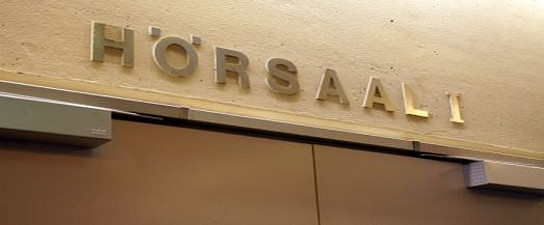Doctoral programme
Goals:
The Doctoral Programme Culture ‒ Text ‒ Action aims for a research-based, interdisciplinary examination of the theoretical and methodological implications of the concepts ‘text’ and ‘action’ when dealing with cultural-scientific issues. The doctoral programme is intended to support doctoral students from various disciplines who are working on a doctoral thesis in cultural studies at the University of Graz with a clear focus on textual and/or practical/action-theoretical approaches. Specifically, it supports them in their implementing of doctoral projects and introduces them to interdisciplinary and international research contexts.
Target audience:
The interdisciplinary Doctoral Programme Culture ‒ Text ‒ Action is aimed at doctoral students from all faculties of the University of Graz who are working on a doctoral thesis in the field of cultural studies.
Possible questions for a doctoral thesis:
The doctoral theses focus on investigating and analysing literary and non-literary texts. More specifically, this includes functional questions, synchronous and diachronic aspects, together with questions in connection with forms and practices for interaction and intervention in texts, the examination of the terms ‘text’ and ‘context’, and the investigation of plurimedial formations as well as questions about theory and method formation and models of interdisciplinary approaches.
What is on offer?
The doctoral programme is intended to support doctoral students in their implementing of doctoral projects and introduces them to interdisciplinary and international research contexts. The support programme includes project-oriented work in small teams organising events, including practice-oriented workshops.
International networking is promoted even further as the doctoral programme is part of the European PhDNet ‘Literary and Cultural Studies’, which includes a total of seven European partner institutions.
Interdisciplinary courses (lecture series, seminar or doctoral colloquium) are offered as part of the doctoral programme. The participating doctoral students have the opportunity to present their work in progress at internal colloquia. They are also encouraged to present their academic findings at international conferences and to strive to have their work published. Teaching staff actively support them in this process. The doctoral programme implements targeted measures to promote the scientific quality of all doctoral theses, serves to internationalise training and aims to improve the career prospects of doctoral students.



